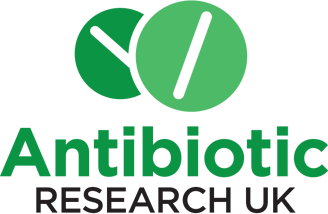Antibiotic Research UK-funded research project DIAMOND has recently published very promising findings in the Pilot and Feasibility Studies journal. The DIAMOND study tested a combination of existing over-the-counter remedies for the treatment of travellers’ diarrhoea. The combination was discovered to have potential in a few isolated cases. It has now been extended to a wider group of patients in China.
Read the full paper here:
The findings show that combining two specific over-the-counter remedies resulted in 70% of the patients in the study not requiring antibiotics. There were no serious adverse effects. These remedies are already available to buy separately without prescription, so would not need the extensive testing that new medicines go through to ensure that they are safe. This means that a new treatment for travellers’ diarrhoea could be available relatively quickly.
What is in the treatments?
The remedies were combined in different groups to see which had the most effect. Participants received one of the following:
- loperamide;
- loperamide and berberine;
- loperamide and turmeric;
- loperamide, berberine and turmeric.
If symptoms did not improve within 48 hours they were offered an antibiotic treatment instead.
Loperamide is an existing treatment for diarrhoea that can be bought in supermarkets and pharmacies without prescription. Berberine is used as an antibacterial treatment for diarrhoea, as well as for other ailments. Turmeric is a spice that is also widely used in indigenous and Chinese medicine and is being investigated for potential anti-inflammatory and anti-cancer properties.
Why treat travellers’ diarrhoea?
Reducing the prescription of antibiotics reduces antibiotic resistance. The DIAMOND study sets out to find alternative treatments that can be used in place of antibiotics for travellers’ diarrhoea. The condition affects more than 60% of people visiting developing countries, as well as many others. This equals more than 15 million people a year. One recent study of people with travellers’ diarrhoea in one city found that every participant had acquired a resistant strain of bacteria during their travels.
If a treatment for travellers’ diarrhoea can be dispensed over the counter at a pharmacy, it is likely to reduce the level of antibiotics prescribed to those travellers enormously. In doing so, it is hoped that resistance levels in those countries will drop. Developing countries often have less strict rules around the use of antibiotics so offer greater potential for improvement.
What does the DIAMOND study show?
The patients were selected from a hospital outpatient setting in China. Up to 75% of patients with acute diarrhoea are given antibiotics in China. Most of the patients that participated in the trial only had mild symptoms; those with severe symptoms wished to receive antibiotics. A total of 136 patients took part.
The researchers found that combining loperamide and berberine gave the shortest median symptom duration. This means that people who took this treatment had their symptoms for less time than any of the other combinations.
- Loperamide; 18 hours median symptom duration.
- Loperamide and berberine; 14 hours median symptom duration.
- Loperamide and turmeric; 20 hours median symptom duration.
- Loperamide, berberine and turmeric; 16 hours median symptom duration.
Only three of the participants took antibiotics after 48 hours.
Interestingly, most participants expressed surprise that they recovered so quickly without antibiotics. This highlights one of the driving forces behind the excessive use of antibiotics to treat the condition.
What do the findings of the DIAMOND study mean?
Professor Colin Garner, Chief Executive of Antibiotic Research UK and one of the authors on the paper, explains:
“The potential impact of this research cannot be underestimated. If this treatment is as effective when applied as it was in the study, it could prevent millions of people taking antibiotics each year. We have already seen that resistance levels in healthcare facilities can drop within just a few months of reducing antibiotic prescribing. This is precisely the type of research that will help us achieve our vision of a world free from deaths caused by drug-resistant infections. We are very grateful to everyone who has ever made a donation to the charity. Thank you for making this possible.”
Who carried out this study?
This study is an example of the power of collaboration between charities, clinicians and academics. DIAMOND includes researchers from the following organisations:
- Murdoch Children’s Research Institute, Australia
- Department of Paediatrics, The University of Melbourne, Australia.
- School of Public Health, Zhejiang University, China.
- Affiliated Hospital of Jiading District Centre, Shanghai Institute of Health Science, China. Primary Care Research Centre, University of Southampton, United Kingdom.
- Antibiotic Research UK, United Kingdom.
- Alchemy Biomedical Consulting, St Johns Innovation Centre, United Kingdom.
What’s next?
The next step is to run a randomised controlled trial. These include more participants in order to thoroughly assess if this treatment is effective enough for use. Such trials include placebos in order to highlight the degree of efficacy. If successful, the trial would also provide doctors with valuable data to support them in refusing antibiotics to difficult patients.
How did we achieve this?
The researchers could only complete this feasibility study because of people like you. Thank you for supporting our charity. Please make a donation if you would like to be part of the next stage of this exciting project.

